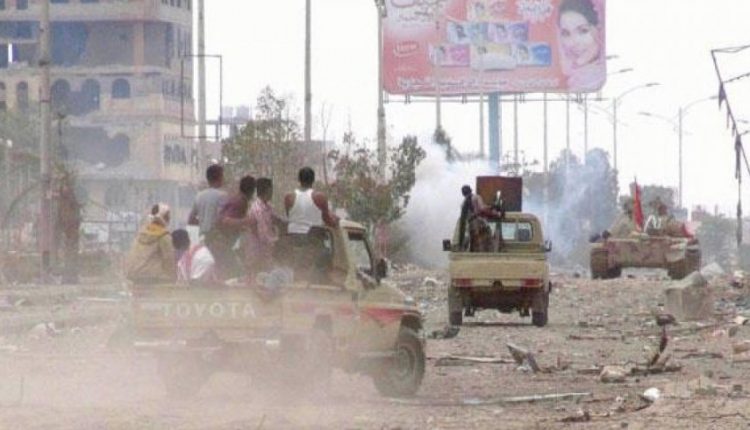SHABWA, Nov. 09 (YPA) – The chaos of tribal and regional feuds has spread from the public markets to the camps of UAE-backed factions in the districts of Shabwa province, which has witnessed a dangerous shift in the nature of social issues since the beginning of 2016.
After the UAE-backed factions’ leaders fueled tribal infighting by supporting and funding their loyal tribes with money and weapons against their opponents in Shabwa, they are now reaping the bitter fruits of their policies within their own camps, which the fever of tribal revenge, regional conflicts, and the revival of outdated cultures and terminology has spread to them.
The camps of the UAE-funded Shabwa Defense and Giants factions have become hotbeds and arenas for settling tribal and regional scores. For example, a recruit named Hussein Mubarak Ali al-Ghunaimi al-Muhammadi al-Yubi was killed last Friday by his fellow from the Al Thawban tribe near the popular Qat market in the city of Al-Ulya in the Bayhan district, due to an old feud between the two tribes.
According to local sources, Al-Ghunaimi was shot in the back by a soldier while going to fetch water, having left his weapon with his comrades. The incident was described as treacherous and cowardly.
This incident was not isolated; it was part of a series of similar events, including clashes and armed confrontations within the camps of UAE-backed factions. This highlights the deep-seated crisis among the recruits themselves, reflecting the security chaos created by the policies of the coalition countries, which serve their interests in the areas they control in southern and eastern Yemen.
At the end of June, Issa Ali Saeed Al-Aghbari Al-Subaihi, a recruit in the so-called Support for the Defense of Shabwa factions, was killed by a fellow soldier from the Dhalea province named Ahmed Hadi Al-Mashraqi Al-Dhali’i. The killing was based on fabricated charges and was one of many assassinations stemming from tribal and regional conflicts.
Last week, the Hanishan camp in Ataq witnessed a furious uprising by officers and recruits from Shabwa against the regionalism of commanders from outside the province, who, according to local sources, have marginalized the people of Shabwa.
The Shabwa recruits at the camp directly accused the camp’s commanders, who hail from Dhalea, of monopolizing positions and promotions, distributing them to their cronies based on regional affiliation, while the sons of Shabwa suffer marginalization regardless of their qualifications and competence.
The Shabwa natives were excluded from financial and in-kind benefits and decision-making positions within the factions’ leadership by UAE-backed faction leaders stems from a lack of trust on the one hand, and the systematic monopolization of leadership roles by individuals from specific regions to maintain their dominance over power and influence through a deliberate policy of controlling military and administrative positions to preserve their status on the other. Simultaneously with the uprising of officers and soldiers from Shabwa against the regionalism of Dhalea at the Hanishan camp, tribal clashes and hand-to-hand fighting erupted inside the Al-Alam training camp between members of the 13th Giants Brigade in Shabwa.
During these clashes, the brigade’s assistant commander, Mazen Fadl Ali Al-Humaira, was wounded after being ambushed from behind while at the camp. Elements were led by Youssef Al-Ma’da attacked Al-Humaira following a dispute that escalated into a regional battle between Al-Ma’da, who hails from Dhalea province and Al-Humaira’s supporters.
The establishment of multiple factions with diverse loyalties and orientations based on regional and extremist religious affiliations from Salafist and Takfiri currents is a dangerous trend aimed at fragmenting the southern and eastern provinces of Yemen. This reflects the conflict of interests between Riyadh and Abu Dhabi, each seeking to secure its own interests and control over these regions for foreign agendas at the expense of the security and stability of the Yemeni people, under various titles and pretexts that are no different at all from the British occupation policy according to the rule is “’divide and conquer’”.
AA


